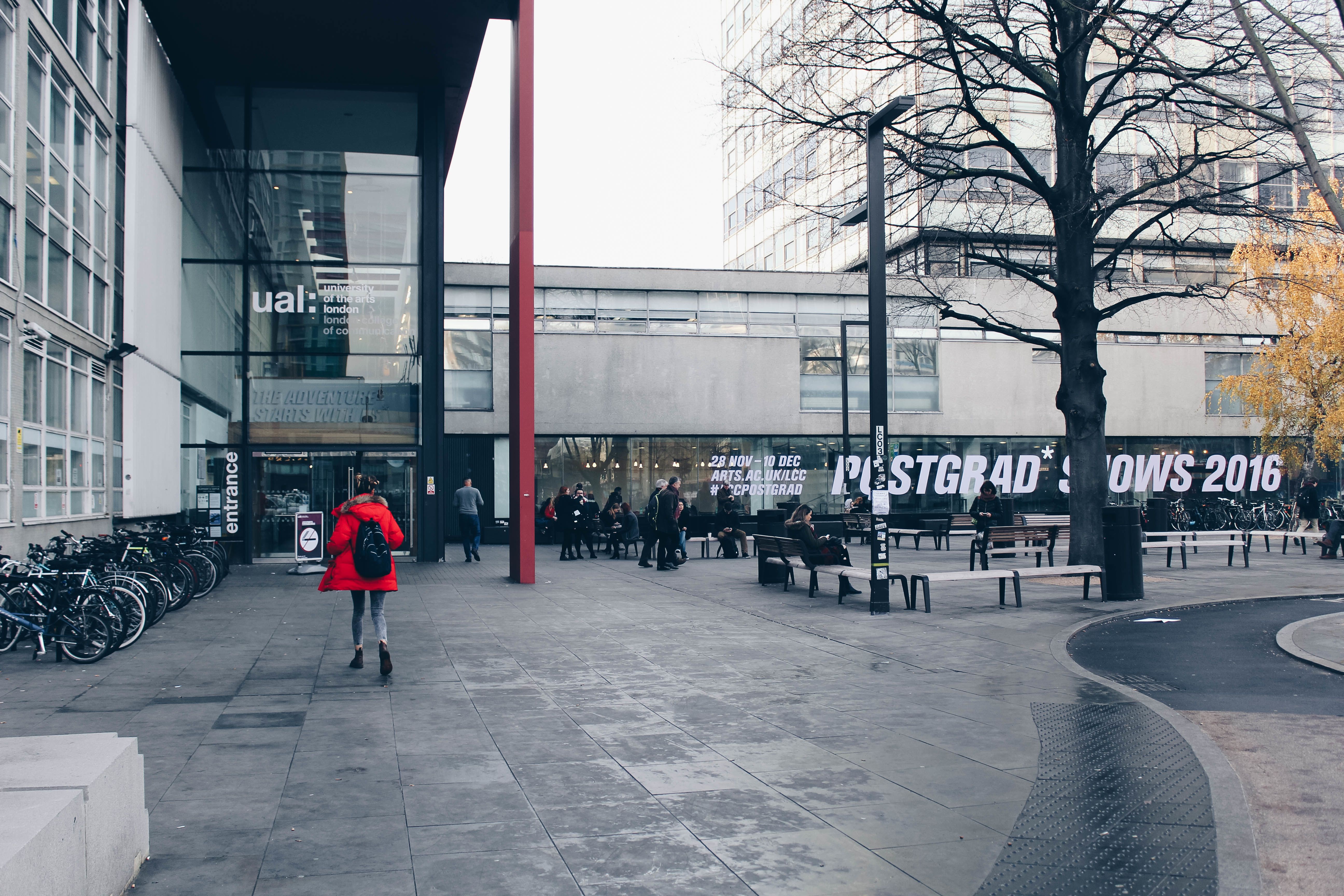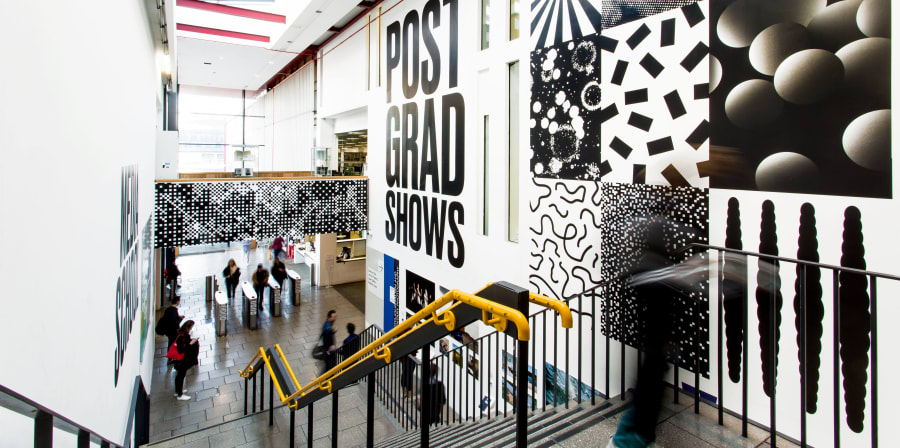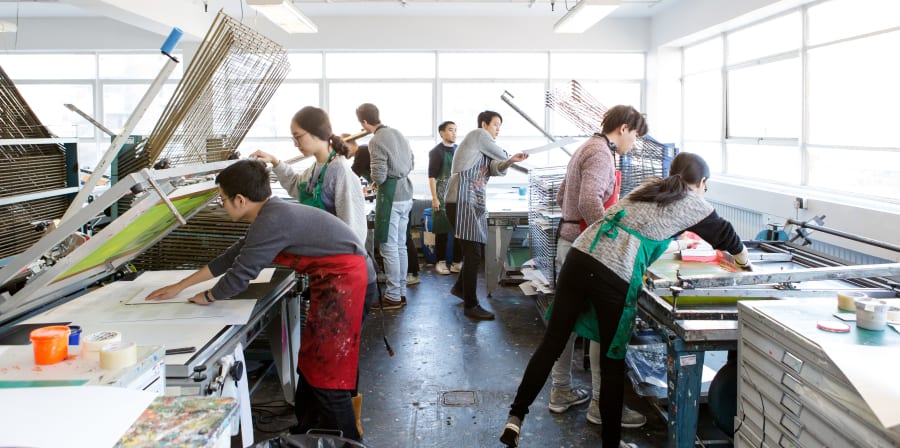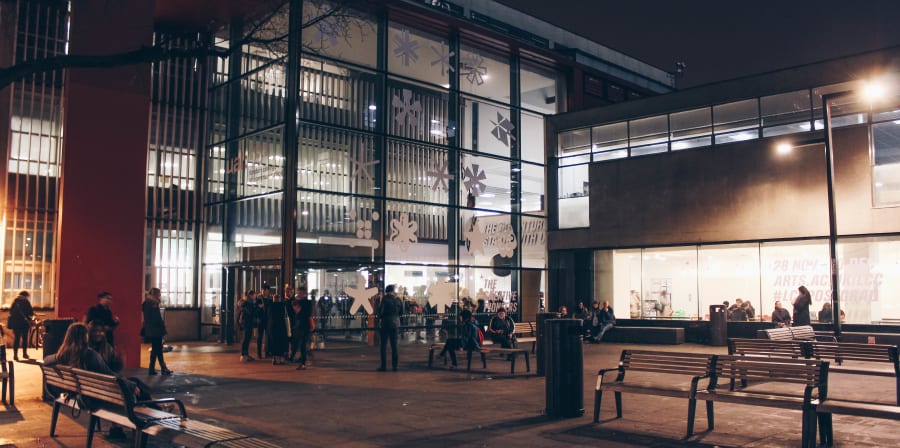Meet LCC’s Student Changemakers; dismantling systematic racism within UAL

- Written byPost-Grad Community
- Published date 18 May 2021

Since April 2020, a group of students have been employed as LCC Changemakers. tasked in co-developing anti-racist, decolonised curriculum and teaching strategies within London College of Communication (LCC).
The LCC Changemakers (students or recent graduates from London College of Communication) each recognize and confront racism and other forms of prejudice, have held conversations around it with classmates and course teams, and are wholeheartedly committed to doing something about it.
Focusing on the current LCC curriculum across undergraduate and postgraduate courses, LCC Changemakers work with course teams to co-develop strategies so that they can help to ensure all student experiences are inclusive, fair and compassionate.
Post-Grad Community takes a moment to highlight this important work to interview the LCC Changemakers Team about their experiences. To find out about what they have been able to change together, their future plans, and the legacy they hope to instil.

The Interview
Lucy Panesar - Progression & Attainment Project Manager, and Changemakers Manager.
Q. Can you tell us about the Changemakers initiative and how it came about?
A. An increasing number of universities across the UK are recognising the value of co-developing inclusive, anti-racist, decolonised curricula in partnership with students as ‘Changemakers’. LCC created the opportunity for nine current students or recent alumni to take on this role in April 2020, building on previous LCC staff-student collaboration projects. Reviewing and reimaging curricula, initiated by current Dean of Screen Zey Suka-Bill. LCC Changemakers are supported to develop and share expertise and confidence in decolonising curricula and teaching practice. In the past academic year they have done this with a number of undergraduate and postgraduate courses through existing quality assurance mechanisms including course reapproval.
Q. What are you most proud of?
A. Whenever I hear Changemakers speak to staff, in meetings or at events, or see an email between them and course leaders, I feel immense pride. I am impressed by the courage and conviction each Changemaker demonstrates in this work, and the way in which they cease opportunities to extend the reach of this work further, across the college and eventually influencing change more widely at UAL.
Q. What are the plans for the initiative?
Our first generation of Changemakers will continue to work with us until the end of this academic year, and will play a role in recruiting and training the second generation of Changemakers who will start in September. We will be recruiting nine Changemakers again, to represent each of LCC’s nine programmes, and recruitment will take place this term through ArtsTemps. If any LCC students or graduates reading this are interested in being one of the next Changemakers, look out for the vacancy on ArtsTemps (deadline 21 May) or email us at: LCCStudentChangemakers@arts.ac.uk
Alex Goodall Changemaker for Sound and Music
Q. What is the Decolonising Wikipedia Network (DWN) and what’s has it achieved so far?
A. Our Decolonising Wikipedia Network is a project, developed by Changemakers, that aims to increase the visibility and credibility of under-represented and/or marginalised arts practitioners through targeted creation and editing of Wikipedia pages. Wikipedia is one of the most used resources worldwide, it is important that it represents a globalised view of thought and practice. So far, we have amassed 65.8K article views with our edits. We run regular workshops to help people to get started with decolonial Wikipedia editing, and with our network expanding, it’s always a good time to sign up!
Sebastian George Changemaker for Journalism and Publishing
Q. Could you explain the reapproval process and how does Changemakers input it?
A. Reapproval is a process that every course at UAL goes through every 5 years. The purpose is up to date and keeping with academic standard. It is an important opportunity for Changemarkers, as it allows us to direct specific courses towards decolonisation. Changemakers can give their input by reviewing reapproval documents & giving feedback.

Ana Blumenkron Changemaker for Photography
Q. Which departments at LCC have you worked with within this role?
I have worked across the Photography Department with almost all courses, helping read the course handbooks and providing suggestions over what improvements can be done to the courses, transforming helping find ways to be more welcoming, diverse and compassionate, especially for international students.
Within the role I have had the chance to help run workshops in partnership with Academic Support, Academic Enhancement, Teaching Enhancement Team and Teaching and Learning Exchange, to speak to members of staff on how students face microaggressions in the classroom and how to avoid it.
Q. Can you tell us about Decolonising Wikipedia Network, with MA Photojournalism and Documentary Photography and its collaborative unit?
A. We had an amazing partnership between Decolonising Wikipedia Network with MA Photojournalism and Documentary Photography and the Collaborative Unit . That led to some students creating new pages in Wikipedia with the antiracism theme. We have also organised writing café events to get to know different people across LCC.
Emma Sproat Changemaker for Branding Design and Innovation
Q. What's is the Academic Enhancement Model (AEM)?
A. The Academic Enhancement Model and Attainment Team support courses that have fallen below the UAL’s thresholds of student satisfaction, attainment and continuation. When a course enters the process of AEM, a space for discussion, collaboration and most importantly, change is introduced to both staff and students. Accompanied with specific pedagogic initiatives delivered by the Attainment Team.
The initiatives fall into three focus strands of activity: Decolonising pedagogy and curriculum, Enhancing assessment for equity and Fostering belonging and compassionate pedagogy.
Q. Could you talk us through your work on decolonising the classroom and how that has influenced the locating practices unit on the BA Design for Art Direction course?
A. Earlier this year, BA Design for Art Direction reached out to Lucy Panesar and I inviting us to come in to host a workshop around decolonisation in the classroom for first year students. The purpose was to support students with their most recent brief, for their Locating Practices Unit which gave the students three optional routes of research, one of which being ‘Decolonising the classroom’. The session itself created a space for students to have an open discussion about decolonisation and how it’s impacted their own learning and to what extent, reflecting on their own previous education before their BA course and their own experiences of decolonised learning.

Prachee Mashru Changemaker for Communications and Media
Q. How are Changemakers involved in decolonisation across campus?
There’s a lot of different aspects that the Changemakers have been involved in, across campus, from decision making to course committee meetings to setting up the Decolonising Wikipedia Network. Most recently, we have tried to take the DWN and embed it within courses, such as BA Media Communications
Q. How are you currently embedding the Decolonising Wikipedia Network in collaboration with BA Media Communications?
A. After multiple meetings with the course team, we thought it would be best to suggest it to students as part of modules that could help enhance their skills. Although it is a volunteer role we have incorporated it within a module for year 1 and a module for year 2 students so they can be as involved as they like while seeing its research and editing benefits for their coursework.
Q. Can you tell us what LCC Value Talks are, and Changemakers role within them?
LCC Value talks is a series within LCC that is dedicated to exploring race, power, gender and education. Earlier last year, the Changemakers were invited to have a conversation with Jordan Barrett-Bryan head of It's All Blakademik and Dean of Media School Steve Cross about our work within the University. We spoke about decolonising the curriculum and the restraints of higher education.
Related Links:
- LCC are now recruiting the next generation of Changemakers to work from September 2021 through to June 2022. Deadline to apply 21 May 2021.
- Choosing to Challenge story by Changemaker Prachee Mashru
- Women Behind the Lens story by Changemaker Ana Blumenkron
- Changemakers Support Students to Diversify Curricula story by former Changemaker Sofia Bordin
- Decolonising the Curriculum Value Talk video with Changemakers Rachel Williams and Prachee Mashru
- Deconolising the Wikipedia Network
- UAL Decolonising reading lists (PDF)
- UAL Supporting attainment with unit design (PDF)
Post-Grad Community at UAL
UAL is home to more than 2,400 postgraduate students working across the fields of art, design, screen, communication, fashion, media and performance. Within our six world-renowned colleges, we aim to form a creative network of artists, designers and innovators.
Post-Grad Community is an inclusive platform for UAL postgraduate students to share work, find opportunities and connect with other creatives within the University and beyond.
Post-Grad Stories
A thriving online magazine of our postgraduate student voices sharing thought-provoking experiences, practices, thoughts and articles about what matters to them.
Download the PDF Guide to writing articles for Post-Grad Stories
Want to write an article? Get in touch with the Post-Grad Community team PGCommunity@arts.ac.uk